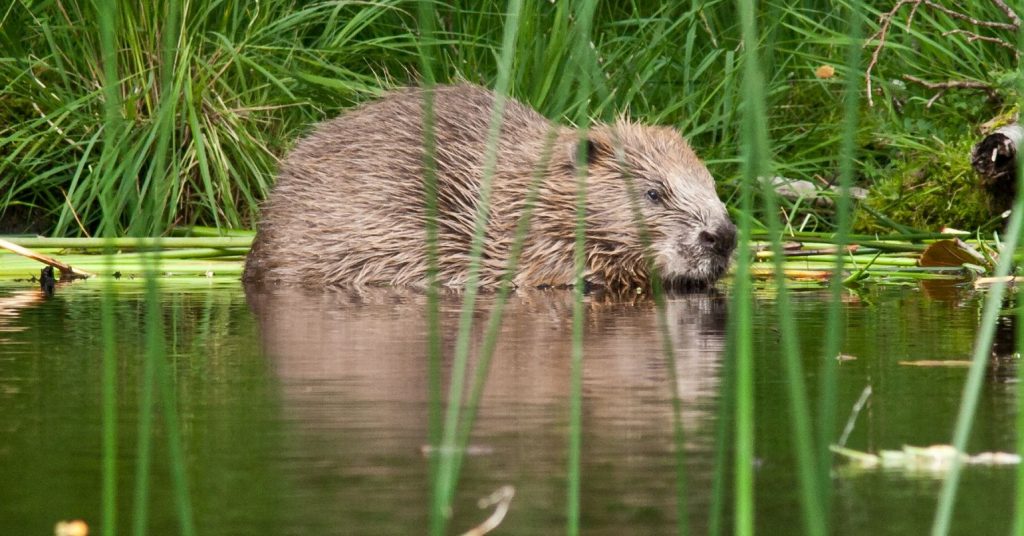£6 million set to support rewilding projects in the UK

The Wildlife Trusts have unveiled a new programme to reverse declines in wildlife in the UK. The programme – Transforming Nature’s Recovery – will see £6 million of funding to support rewilding projects, reintroduce keystone species and provide better protections for marine and coastal habitats.
Among the projects in the programme are moorland restoration in the Peak District, landscape recovery along Hadrian’s Wall, peatland restoration in Northern Ireland and marine conservation in Wales. The programme is designed to help the UK achieve its target of protecting at least 30% of land and sea by 2030.
The programme comes at a time when more than 40% of species in the UK are in decline and over 15% are threatened with extinction.
The UK is presently one of the most nature-depleted countries in the world. Seas are at risk from over exploitation and development, rivers are dying from agricultural and sewage pollution, and many people have a lack of access to nature.
As part of the funding for species reintroduction, funding will contribute towards application and release programmes of free-living beavers and low level herbivores such as Exmoor ponies.
In marine conservation, funding will be used to support the aim of delivering nature recovery in 30% of Welsh seas by 2023.
The Wildlife Trusts say the programme is designed to help the UK achieve its existing target of protecting at least 30% of land and sea by 2030 and reaching net zero carbon emissions by 2050. Research shows there is a funding gap of an estimated £56 billion to achieve the UK’s nature-related targets over the subsequent decade.
Dr Rob Stoneman, director of landscape recovery at The Wildlife Trusts, aid: “Our bold approach to nature recovery is a highly necessary change of gear that will benefit every single one of us. Restoring and expanding wild places tackles problems of flooding, drought and pollinator decline; this is critical for farming, healthier rivers and seas, and adapting to the changing climate.
“Extinctions, pollution, and wildfires make headlines with increasing frequency and so it’s vital to go much further with nature recovery across the UK. We must create a place where wildlife, farming and people thrive together; where beavers work their magic and benefit communities; where seas are abundant with marine wildlife, and where there’s easy access to nature to improve people’s lives. This game-changing donation from the Ecological Restoration Fund will bolster our work when nature needs us most.”
Daniel Hotz, chair of the Ecological Restoration Fund, added: “We’re proud to support The Wildlife Trusts in their ambitious vision for UK nature recovery. Recognising that our collective futures are intrinsically bound to the health of our environment, the urgency to address the UK’s troubling species decline and habitat degradation is paramount. By knitting together and rejuvenating wild spaces, we’re not only creating richer habitats for wildlife but also bringing tangible benefits to local communities.”
Among the projects to benefit from the funding are:
- Peak District nature recovery – a pioneering project across 132 hectares at Ughill Farm to restore heathland and moorland alongside nature-friendly farming
- Welsh Marches – funds will secure the future of Pentwyn, a landscape recovery project covering 164 acres. It sits within a new project known as Wilder Marches, a cross-country partnership between four Wildlife Trusts to restore nature over 100,000 hectares along the English-Welsh border
- Archer’s Green – protecting flower-rich grasslands and a chalk stream by connecting existing nature reserves in the Mimram Valley, Hertfordshire
- Hadrian’s Wall corridor – working with farmers and communities to create a nature recovery programme from coast to coast including around Newcastle and Carlisle
- River Severn landscape recovery – funds will provide nature-friendly farm advice across this huge area and complement existing habitat improvement and wetland restoration projects across the River Severn catchment such as Treescapes and Eelscapes, which are funded by Defra
- Peatland restoration – working with farmers and landowners to restore upland and lowland bogs in Counties Fermanagh and Tyrone in Northern Ireland
- Atlantic rainforest restoration – restoring and expanding temperate rainforest in areas where they used to grow along the damper, western climes of the British Isles
PS. We hope you enjoyed this article. Bright Green has got big plans for the future to publish many more articles like this. You can help make that happen. Please donate to Bright Green now donate to Bright Green now.




Leave a Reply